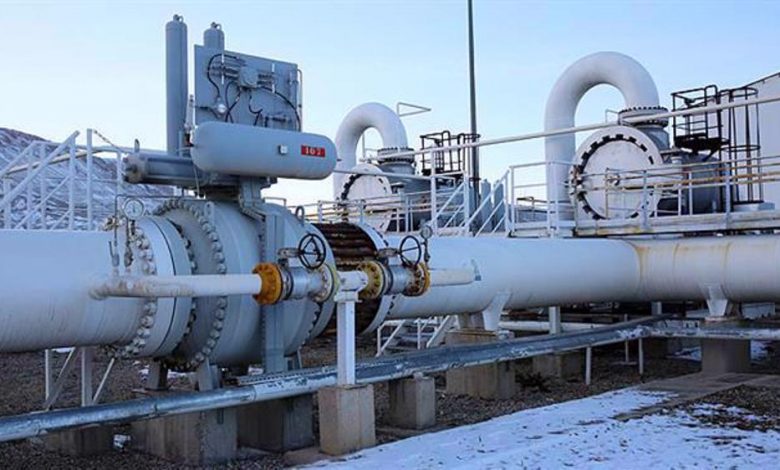
The gas flow has stopped since March 31 when an explosion blew up the pipeline through which Iran sells about 10 billion cubic meters (bcm) a year of gas to Turkey under a 25-year supply deal signed in 1996.
The pipeline has been the target of frequent attacks by PKK terrorists, but Turkey’s apparent vacillation on repairing the damaged section has surprised Iran.
Interim caretaker of the Iranian Gas Transmission Company Mehdi Jamshidi-Dana said on Monday Turkey is not receptive to Iran’s readiness to repair the pipeline.

Jamshidi-Dana, who was the former director for dispatching at state-owned National Iranian Gas Company, also dismissed Turkey’s characterization of the pipeline explosion as a force majeure event which excused the country from paying for gas not taken during the halt.
“Iran has announced in writing that it does not accept this is a force majeure event. In several correspondences, we said Iran is ready to repair this pipeline within eight days but the Turkish side didn’t welcome that,” he said.
Jamshidi-Dana hoped Ankara would not go to such lengths which might force Tehran to take the issue to international arbitration – mirroring Turkey’s own action in 2016 when it secured discounts for the gas supplied by Iran after going to a court of arbitration.
The official said “friendly relationship and professional acting by Turkey” would hopefully do away with such a need.
“We predict that the repair of the Iran-Turkey gas pipeline will end in the month of Tir (June 21-July 21) and gas flow will resume,” he said.
Turkey is Iran’s biggest gas client and a major trade partner, which has balked at the United States’ unilateral sanctions on the Islamic Republic, but it also knows which side of its bread is buttered.
Iran’s Minister of Petroleum Bijan Zangeneh has confirmed that Turkey was not showing interest despite the Islamic Republic’s offer of help to repair the damaged section inside Turkish land.
According to S&P Global Platts, Turkey is delaying the completion of repairs to the gas pipeline in an apparent attempt both to curry favor with Washington and to pressure Tehran to further reduce its prices.
Turkey has taken 23 cargoes of US LNG already in 2020, compared with 13 for the whole of 2019 and just four in 2018, the commodity pricing agency said.
It imported 7.7 bcm of gas from Iran in 2019 or some 17% of its total gas imports, while their long-term contract allows Ankara to buy 9.6 bcm a year, the agency added.
Turkey’s deputy energy minister Alparslan Bayraktar left nothing to the imagination when he told a conference in Istanbul in February that Ankara planned to use the availability of US spot LNG to persuade its long-term gas suppliers to lower their prices.
Turkey’s other major gas suppliers are Russia and Azerbaijan. Because of their cultural and linguistic closeness, Azerbaijan provides the cheapest gas among the suppliers, piping 6.6 bcm of gas annually from the Shah Deniz field in the Caspian Sea.
Russian gas supplies to Turkey declined by 35.3% to 15.51 bcm last year, Kremlin-controlled gas giant Gazprom said in February.
US inroads are in line with President Donald Trump’s “energy dominance” agenda that seeks to advance diplomatic and policy objectives through rapidly expanding American oil and gas exports.
Turkey’s relations with the US have been at a historic low for the past two years, but Trump and his Turkish counterpart Recep Tayyip Erdogan have spoken by telephone at least three times this year with the aim of patching up their divisions.
A key plank of their discussions is reportedly Trump’s offer to sign a $100 billion trade agreement with Turkey, making US LNG a potential threat to piped gas from Iran and Russia.
Nevertheless, Iran’s supply contract with Turkey runs until July 2026 and much of the knee-jerk reaction relates to long-term ramifications, including the prospect of losing an important regional market.
Iran may lose its biggest gas market to rivals, which could cost the country $150 million-$200 million in lost revenues a month, Fars news agency warned in an analysis last month.
Jamshidi-Dana said talks for an extension of the contract are underway, though progress is being impacted by the global pandemic situation.
“Negotiations to sign new contract are being carried out slowly because of the coronavirus outbreak. But our examinations show that imports of Iran’s gas have advantages for them. It’s still not clear what a new contract would be. But Turkey undoubtedly needs to import gas from Iran,” he said.







